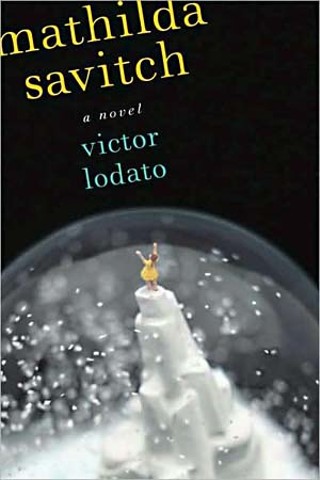Book Review: In Print: Texas Book Festival Authors
In Mathilda Savitch's best stretches, it is a marvel of observational acuity and lyrical phrasing
Reviewed by Kimberley Jones, Fri., Oct. 23, 2009

Mathilda Savitch: A Novel
by Victor LodatoFarrar, Straus and Giroux; 304 pp.; $25
I don't know how one is meant to pronounce the last name of the titular Mathilda – a long "a"? an uptick on the -itch? – but in my mind, it rings close to "savage." That sounds about right for preteen Mathilda, who narrates: She can be vicious, yes, but, in the more primal sense, she's a wild child, wracked by grief and bewilderment over the death of her radiant older sister, Helene, and furiously acting out. Her parents – a kind but ineffective father, a bathrobed mother with bottles stashed around the house – are practically zombies. And as if growing up wasn't complicated enough, Mathilda's already uneasy puberty is colored by the nightly news of terrorist attacks, which engenders a constant state of anxiety and peril that she internalizes and even sexualizes, even though she admits she doesn't entirely understand what's going on (of a recent suicide bombing, she says, "It's getting to be a big problem over there in one of those problematic countries").
In many ways, Mathilda is a child putting on like she's an adult, and Lodato, a poet and playwright in his fiction debut, creates in her an unforgettable voice. His Mathilda is an acerbic wit, yet is capable of great rushes of compassion; she is plainspoken, but given to the most lovely, left-field reflections. Recalling the way her parents were before Helene's death, Mathilda says, "Da gave Ma the kind of kisses that linger, and afterwards she looked like someone who'd just had a bath." The book's first passage (out of four) is its strongest: a marvel of observational acuity and lyrical phrasing.
But as the terror backdrop comes more to the fore and Mathilda grows increasingly unhinged, the novel loses its forward thrust. Her endless bad decisions and the havoc they wreak are exhausting, to the point where she begins slipping away not just from her parents but from the reader. (There is also a rather major irritant in the fact that Lodato waits a full 147 pages to reveal his narrator to be unreliable – a bit too long to hold his cards, I think.) But the book rebounds in its more tightly plotted last passage, where Mathilda takes a train ride to find answers about her sister's death and finds herself – the child putting on like she's an adult – at a crossroads that is inevitable but still pained: "This is where grownups live, and suddenly I'm afraid I'll have to stay here forever."
Victor Lodato will appear at the Texas Book Festival on Sunday, Nov. 1, (12:30-1:30pm, Capitol Extension, Room E2.012) on the panel American Short Fiction and TBF Present Possessed: Characters With Magnificent Obsessions. For more info, visit www.texasbookfestival.org.










